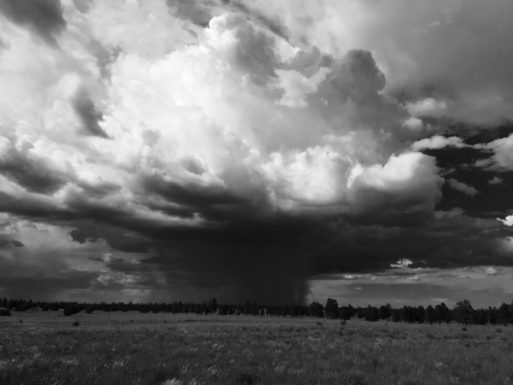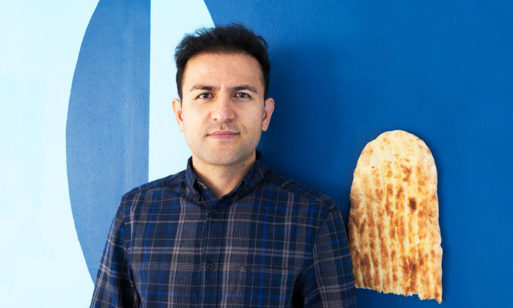
My beloved if
Death be here for you
Let it be in tuberculosis’ form
Or the form of bitter cold,
Not as prey of suicide bombing.You should have the time
To review your memories,
To review the particulars of your body,
To make plans for your departure.
Not to depart the house on your feet
And we only find your shoes in the bazaar.
Not to ever find your hands or your smile.
Never to locate your eyes.With my own eyes I ought to
Witness your death, your final breath.
My fingers should touch your eyelids to close.
Otherwise, no one will believe it, forever
I myself will not believe it.
Elyas Alavi fled Afghanistan as a child during the Soviet occupation, spending several years in Iran and eventually settling in Adelaide as an Australian citizen. As a visual artist and a poet, Alavi has made a name for himself in the global arts scene with his work focused on migration, displacement, war and social justice. He has published three poetry collections: “I’m a Daydreamer Wolf” (2008), “Some Wounds” (2012) and “Hodood” (2015).

Poet and artist Elyas Alavi
Credit: Grant Hancock
“I Do Not Believe” is a sparse, gentle poem that touches on the fear of losing a loved one. Faced with the mortality of those we hold dear, we focus our will on the details of their death: that they die comfortably, and not too soon. For Alavi, this hope is shadowed with the very real threat of violent, untimely loss due to war.
The poem, translated from its original Persian by Fatemeh Shams and Leonard Schwartz, is both intimate and universal. It explores the vast, human tragedy of conflict as well as the minute details of personal grief, lingering on details like a pair of shoes left behind, cruelly insufficient in the wake of such loss. While death itself can seem like the greatest tragedy, Alavi’s simple wish that his loved one’s passing be peaceful reminds us that there may be such thing as a “good death” — and that bad deaths are too often of human making.
Following the exit of American troops in Afghanistan and the Taliban’s takeover of Kabul in August, Alavi has been working in Australia to raise money and advocate federal support for Afghani citizens and refugees. He believes that Australian cultural institutions should create residencies and opportunities for Afghani artists. “I don’t want them to forget their friends in Afghanistan, because they now cannot speak up out of fear,” Alavi told CityMag in an interview.
You can listen to Alavi read “I Do Not Believe” in its original Persian on the WorldLit website.

 “I Do Not Believe” by Elyas Alavi, translated by Fatemeh Shams & Leonard Schwartz
“I Do Not Believe” by Elyas Alavi, translated by Fatemeh Shams & Leonard Schwartz


 National Donate Life Month Reminds Us To Give
National Donate Life Month Reminds Us To Give
 How Dare You Die Now!
How Dare You Die Now!
 Debating Medical Aid in Dying
Debating Medical Aid in Dying














